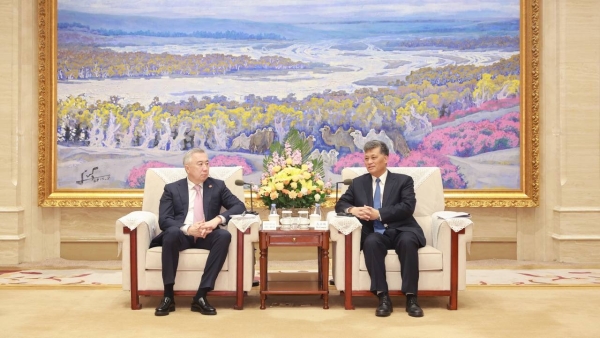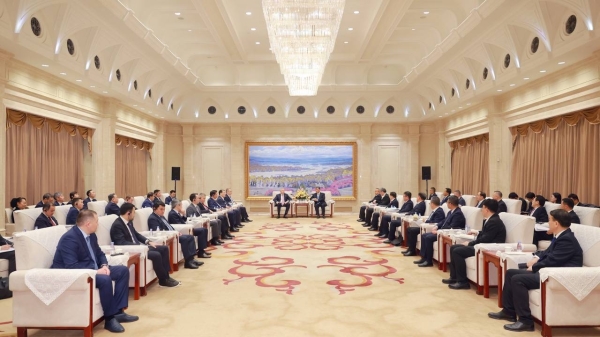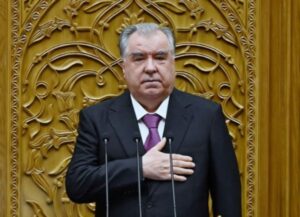Kazakhstan’s trade turnover with the Xinjiang Uyghur Autonomous Region (XUAR) of China has increased by 22.46% y/y, reaching $17.67bn in the first nine months of 2024. This marks a step towards achieving the goal of doubling trade between the two regions.

On December 5, Kazakhstan’s Deputy Prime Minister, Serik Zhumangarin, met with Ma Xingrui, Secretary of the Party Committee of XUAR, in Urumqi to discuss strengthening bilateral trade relations and exploring new opportunities for cooperation.
XUAR remains Kazakhstan’s largest trade partner in China, accounting for nearly half of the bilateral trade. Last year, trade between Kazakhstan and XUAR surged by 62%, reaching $20.3bn.
During the meeting, Zhumangarin emphasized Kazakhstan’s goal to double trade with XUAR, a key part of the broader target of increasing Kazakhstan-China trade to $100bn. He highlighted that Kazakhstan had identified 180 types of goods, worth $1.6bn, which could be exported to China, including products from the metallurgical, petrochemical, food, chemical, and mechanical engineering industries.
A significant part of the discussions focused on improving transport and logistics efficiency. Zhumangarin praised the ongoing efforts to open “green corridors” at the Kazakh-Chinese border to speed up agricultural product shipments. He proposed extending the 24/7 operations at the Nur Zholy – Khorgos checkpoint to other road crossings. Additionally, new checkpoints are being planned for the Almaty and East Kazakhstan regions to further enhance connectivity.
Shipping emerged as another promising transport route. Kazakhstan is pushing for the development of a multimodal transit corridor via the transboundary Irtysh River, with initial freight volumes expected to reach 2mn – 2.5mn tons. A proposed river port near the village of Tugyl and a new railway crossing at Maykapchagay – Zimunay are part of this initiative. Zhumangarin also pointed to the potential of developing a river route along the Ili River, linking Kazakhstan’s Konayev city with China’s Yining.

Zhumangarin highlighted Kazakhstan’s role in facilitating land transport from China to Europe, with over 80% of such routes passing through Kazakhstan. In the first nine months of 2024, transportation along the Middle Corridor surpassed last year’s totals, reaching 3.4mn tons. By 2030, Kazakhstan plans to increase this to 10mn tons annually. Zhumangarin also announced that the number of container trains between Kazakhstan and China would gradually increase from 600 to 2,000 by 2029.
To further support trade, Kazakhstan is also ready to invest in a multimodal logistics terminal at the Khorgos station to handle dry cargo, containers, and grain transshipment.
Ma Xingrui acknowledged Kazakhstan’s contributions to boosting cooperation and supported the proposal to increase trade turnover. He mentioned that Xinjiang businesses were prepared to purchase minerals, non-ferrous metals, agricultural, and other products if supply volumes meet demand.
Both sides also discussed reducing bureaucratic barriers hindering agricultural exports, particularly Kazakh grains, poultry, and meat products. Measures to address issues such as lengthy accreditation procedures and strict import controls on agricultural products were discussed, with the aim of streamlining trade processes.
At the conclusion of the meeting, Zhumangarin invited Ma Xingrui to visit Kazakhstan in 2025.




